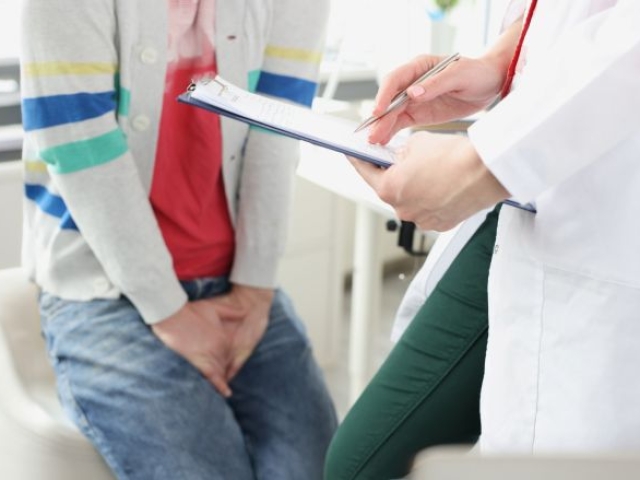
Factors that May Increase Chances of Infection with Inflatable Penile Prostheses

Introduction
An inflatable penile prosthesis (IPP) is a permanent device that can be used to correct erectile dysfunction. However, despite constantly advancing surgical techniques, infection is still possible. This would require the removal and replacement of the device and is naturally a dreaded complication.
Several techniques have been proposed to assist with mitigating infection from IPP procedures, such as antimicrobial irrigation solutions and the creation of antibiotic-coated devices. More recently, Coloplast’s Titan employs a hydrophilic surface coating, which allows antibiotic or antimicrobial solutions to absorb into the coating and potentially mitigate infections. Otherwise, Boston Scientific’s AMS 700 is coated with a mix of antibiotics and specifies that it should not be dipped or soaked in antimicrobial solutions. Both of these can be used with antibiotic irrigation intra-operatively.
Irrisept is an irrigation device that uses a solution consisting of .05% chlorhexidine gluconate (CHG) and 99.95% sterile water and is FDA-approved as a wound irrigation device. Otherwise, it has been proposed as a solution for surgical irrigation in IPP placement. If Irrisept or this CHG mixture were helpful for reducing infections, it would be a cost-effective and efficient solution in the operating room.
Between January 2021, and May 2024, researchers worked to compare the clinical outcomes of Irrisept against other existing antibiotic solutions, as well as clinical factors that may pose risk to infection rates (operative time, diabetes, obesity, urinary tract issues, and age).
Methods
Five hundred and ninety-seven (597) patients were chosen from all patients who underwent IPP surgeries, as well as revisions, from 3 different surgeons. In the first 20 months of the study period, 320 patients had received a device soaked in a standard antibiotic solution of rifampin and gentamicin in saline solution, and with irrigation of gentamicin and vancomycin. In the last 20 months, 377 patients had received a device that was both dipped in and irrigated with the Irrisept CHG solution. The primary surgical method was the penoscrotal technique with standard pre-operative safety and sterilization measures.
Results
Overall, there was a 1.9% infection rate, with no infections in the antibiotic group. Of the 377 CHG patients, 3.5% had post-operative infections. Out of the initial (virgin) placement cases (315) using CHG, 2.2% had post-operative infections, while out of the revision cases (62) using CHG, 9.7% had post-operative infections.
Average operative time was significantly longer in patients with infections than in those without. For virgin procedures, those with infections were about 81 minutes, while those without infections were around 66 minutes. For revision procedures, those with infections were around 114 minutes, while those without infections were around 75 minutes.
Diabetes was more prevalent in the CHG group than the antibiotic group, with 64% of patients with infections having HbA1c levels conclusive of diabetes (compared to only 25% of those without infections).
Discussion & Conclusion
Researchers found that the main risk factors for infection with IPP placement were:
- CHG dip and irrigation with the Coloplast hydrophilic-coated device
- Diabetes
- Revision procedures
- Total operative time
The most impactful risk for infection appeared to be diabetes. Researchers believe this may be due to general surgical risk with diabetic patients. Because HbA1c levels have to be checked prior to surgery regardless, all patients included had levels below 8.5%, with only 14 patients in the CHG group over 8%. Due to the nature of revision surgery, it makes sense that this would be the second most impactful risk for infection. Researchers believe this may have something to do with biofilms from devices. Total operative time as a risk factor can be attributed to time of device exposure to the environment, with about a 1% increase in likelihood of infection per every additional minute of surgical time. Lastly, the Irrisept group was the only group that had reported post-operative infections, suggesting that these devices and CHG solutions are more likely to cause infection than more standard methods.
Surgeons are encouraged to avoid this combination of device and antiseptic until more research can be conducted to support the method. Despite the non-randomized study design, the use of HbA1c levels as a representation of diabetes, and the inclusion of multiple surgeons, this study provides insightful evidence from a large sample size as to the efficacy of CHG solutions and the Coloplast hydrophilic coating in terms of IPP infection rates.
References:
- Helo, S., Bonakdar Hashemi, M., Ziegelmann, M. J., Lybbert, D. T., Piraino, J., Guillen Lozoya, A. H., & Köhler, T. S. (2025). Chlorhexidine gluconate application, diabetes, revision surgery, and Extended Operative Time Increase Risk for penile implant infection. The Journal of Sexual Medicine, 22(3), 508–516. https://doi.org/10.1093/jsxmed/qdaf009

